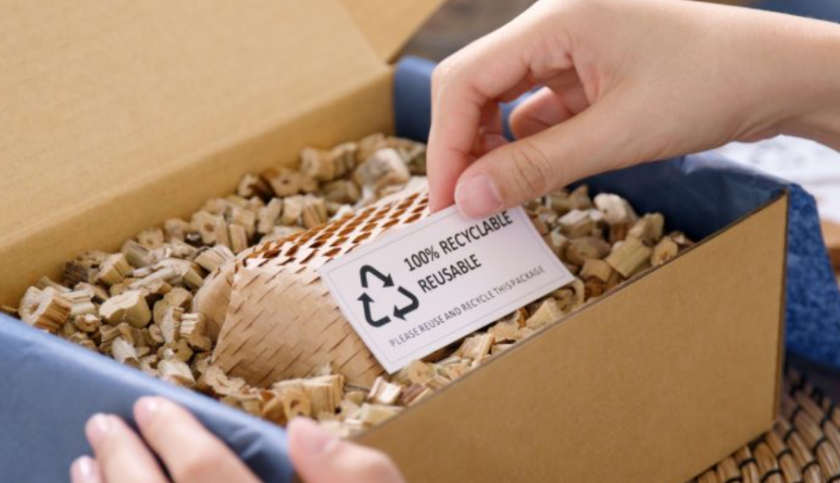If you were to boil down 2020 to a single image, it would probably be a face mask. It’s something the general public probably never had to wear, let alone keep a stock of for things like going to the grocery store or picking up dinner. But, obviously, things have changed.
And with the boom of wearing face masks for the greater good of slowing down the spread of the virus comes the possible negative of increasing pollution. You’ve probably seen plenty of face masks—both disposable and reusable—littering the streets in your town. So, it’s not hard to imagine how many are ending up in waterways and oceans.
Conservationists believe that face masks could compound the issue they already face with plastic waste.
Divers associated with the French nonprofit Opération Mer Propre (“Operation Clean Sea”) described to The Guardian what they called “COVID waste”—gloves, face masks and hand sanitizer bottles—floating in the Mediterranean Sea among the disposable cups and aluminum cans they’re used to seeing.
“It’s the promise of pollution to come if nothing is done,” Joffrey Peltier with Opération Mer Propre told The Guardian.
In the U.K. alone, if every person used a single-use face mask a day for a year, it would create an additional 66,000 tonnes of contaminated waste and 57,000 tonnes of plastic packaging. Reduce your waste and use a reusable mask!
Full article: https://t.co/xORaLEc4Yt
— NS Recycling & Waste (@ns_recycling) August 6, 2020
Like the water bottle problem, one way to mitigate this risk is to wear reusable face masks rather than single-use, disposable ones. And while the issue has not reached the level of plastic bottles or other refuse, experts recommend practicing proper disposal and consciousness before it gets to that point.
Here’s what OMP’s Laurent Lombard posted on Facebook back in May (translated from French):
Would you like to swim with COVID 19 this summer…?
Knowing that more than 2 billion disposable masks have been ordered, soon there is likely to be more masks than jellyfish in Mediterranean waters…!
Everyone’s responsibility is to avoid this new pollution but also to our elected officials, deputies and public authorities. Indeed for several years some communes have been trying to fight against all these incivilities that destroy our environment and our health in the long term, so it might be time to unite all the right initiatives to resolve this new pollution as quickly and firmly as possible.
The health crisis has allowed us to see the best and the worst in us, if we do nothing it’s the worst that will happen when it’s just a matter of common sense to avoid all of this.
I’d just say to finish that a disposable mask is throwing in the trash like all the other trash by the way.
The fear among environmentalists is that a lot of masks are made with polypropylene, which gives them a lifespan of about 450 years, rather than breaking down once disposed of.
Hong Kong-based OceansAsia found more about 100 masks washed up among the city’s Soko Islands.
“On a beach about 100 meters long, we found about 70,” Gary Stokes of OceansAsia told The Guardian. “And that’s on an uninhabited island in the middle of nowhere.”
To see how they got there, they started looking at nearby beaches where people lived and hung out. Not to anyone’s surprise, they found masks “everywhere.”
“Ever since society started wearing masks, the cause and effects are being seen on the beaches,” Stokes said. “It’s just another item of marine debris. It’s no better, no worse, just another item we’re leaving as a legacy to the next generation.”
Thankfully, there have been education programs and conservation efforts in place for products like water bottles, micro-plastics and single-use straws, so society is no stranger to reusable options. We’ve seen the impacts of filling up a reusable water bottle or bringing along a metal straw. The same principle now applies to face masks. And, also thankfully, companies have stepped up to make reusable face masks.
It’s just up to everyone to not only wear them to protect each other from illness, but also to dispose of them properly when the time comes, and wash and reuse them in the meantime.
To combat the issue in the U.S., local governments in Suffolk County, N.Y., and Swampscott, Mass., have implemented fines for littering masks.
“This pandemic is causing the face of litter to change,” Helen Lowman, CEO of nonprofit Keep America Beautiful, told the New York Times. “We’re seeing a real shift in what is in the litter stream.”
The Times also cited a University College London study that found that if everyone in the U.K. wore a new disposable mask every day for a year, it would add 66,000 metric tons of plastic waste to the oceans, plus 57,000 metric tons of packaging.
Thankfully, the virus can’t survive for long on surfaces, so there’s no risk of catching the disease from swimming near a mask, but the implications on wildlife and ocean environments is very real.
“The bottom line is we don’t want a public health crisis to add to the plastic pollution crisis,” Adrienne Esposito, executive director of Citizens Campaign for the Environment, told the New York Times. “The answer is simple and the act is easy: Just throw out your PPE.”


